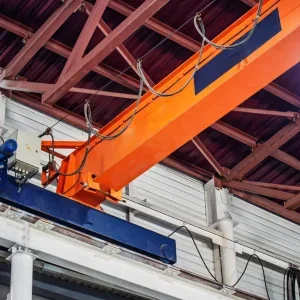The largest clean energy project in the history of Portugal will be capable of producing 1,158 MW and storing the energy consumed by 11 million people a day in their homes. It will prevent the import of more than 160,000 tons of oil per year.
The Tâmega gigabattery in Portugal is a hydroelectric storage complex carried out by Iberdrola, capable of storing 40 million kWh, i.e. the energy consumed by 11 million people in 24 hours. It is a major engineering work that began in 2014 and has now established itself as the largest renewable energy project in the Portuguese country.
"We are very pleased to have contributed with nine cranes to a project of such magnitude, committed to clean energies" said Antonio Naranjo, marketing manager, JASO.
The nine cranes were installed in the three hydroelectric power plants that make up this project: Gouvães, Alto Tâmega and Daivões.
In 2019, JASO contributed three cranes to the Gouvães pumping station: a one 20-ton double-girder gantry crane and two 150/20-ton double-girder cranes and in 2020, it installed three cranes at the Daivões utilization: one 15-ton double-girder semi-gantry crane; one 20-ton single-girder crane and one 200-ton double girder crane.
Finally, in 2022, the company returned to the Alto Tâmega power plant to install the last three cranes of the project into operation: a 15-ton double-girder semi-gantry crane; a 20-ton single-girder crane and one 210-ton double-girder crane.
The cranes will be used for assembly and maintenance tasks to ensure the full performance of the hydroelectric complex throughout its lifetime.
“It is an honor for JASO to be part of the transition to a more sustainable system thanks to a project like this, which allows the storage of large amounts of energy to be used when it is most needed. The Tâmega gigabattery will prevent the emission of 1.2 million tons of CO2 per year, generate a 6% increase in the country's electrical power and avoid importing more than 160,000 tons of oil per year,” added Naranjo.






